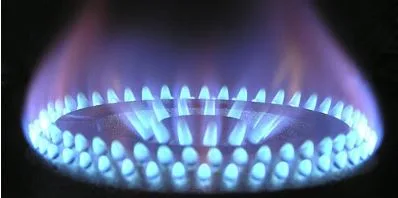Dubai Drivers Report Rising Issues with Cooling Systems in 2025
Dubai’s motorists are seeing an alarming uptick in car cooling system problems in 2025. As summer temperatures soared to near-record highs (inland areas hit 51.8°C in August), many vehicles that once ran fine are now struggling to stay cool. Local media warned that at ~50°C, cars become prone to overheating and even engine fires. Indeed, drivers have reported spiking temperature gauges, steaming radiators, and weak air conditioning during the blistering heat. The Roads and Transport Authority (RTA) and police have taken note — from free summer check-ups to awareness campaigns — all emphasizing healthy cooling systems. 2025’s extreme heat has pushed engines and radiators to their limits, making cooling system failures a serious concern for Dubai drivers.
Surge in Overheating and Radiator Failures in 2025
Radiator repair has become a common necessity for many Dubai motorists this year, as the extreme heat triggers a wave of engine overheating issues. Garages across the city report an uptick in vehicles arriving with blown radiators and cracked coolant hoses due to overheating. In one severe 52°C heatwave of 2024, Abu Dhabi and Dubai recorded 2,189 vehicle fires — nearly half of those incidents were attributed to extreme heat. According to industry experts at Golden Horse https://golden-horse.ae/services/radiator-repair/ , a leading car service in Dubai, “Even without a fire, an overheated engine can seize up and leave a driver stranded on the roadside.”
Mechanics say they have never seen so many cooling-related breakdowns. One major culprit is low or leaking coolant — tellingly, low engine coolant was among the most common problems in cars brought for summer repairs. Extreme heat also makes weak components give way: plastic radiator parts and hoses can expand and split under sustained high temperatures. Many breakdowns this summer were caused by coolant pipe cracks that only became evident when the heat peaked.
Drivers have encountered a range of cooling system failures this summer, for example:
- Overheating engines: Dashboard temperature needle hitting the red, often accompanied by steam from under the hood.
- Coolant leaks: Cracked radiators or burst hoses causing sudden coolant loss (and an urgent need for radiator repair).
- Faulty cooling parts: Malfunctions like a stuck thermostat, weak water pump, or broken fan that sharply reduce cooling performance.
- AC failures: Air-conditioning systems under extreme load stop cooling, adding extra stress to the engine.
Clearly, 2025’s record heat — combined with any lapses in upkeep — has led to an unprecedented surge in cooling system troubles for Dubai’s drivers.
Why Extreme Heat Strains Vehicle Cooling Systems
Dubai’s 2025 summer has been brutally hot, with daily highs in the mid–40°C and peaks above 50°C. Such extreme heat makes it much harder for engines to shed heat. Normally, a radiator can dissipate engine warmth, but when outside air is already 45–50°C, it barely cools the coolant. Engines run hotter than usual, and any weakness in the system is quickly exposed. A cooling system that might cope fine in milder weather can outright fail in Dubai’s summer.
Another factor is the relentless use of air conditioning. In Dubai, drivers run the AC at full blast for months on end — it’s essential for comfort, but it adds extra load on the engine and creates additional heat under the hood. By contrast, in moderate climates the AC is used only intermittently, so the strain on the cooling system is far less. The comparison below highlights how a vehicle’s cooling demands in Dubai’s summer far exceed those in gentler conditions:
| Aspect | Moderate Climate (sub-30°C) | Dubai’s Extreme Summer (45–50°C) |
| Engine overheating risk | Low — engines rarely overheat. | High — even a slight cooling issue can cause overheating. |
| AC usage & load | Occasional use; often not needed at night. | Constant heavy use — AC runs non-stop in summer. |
| Maintenance needs | Infrequent — e.g. coolant change every few years. | Frequent — coolant and AC service every year. |
Crucially, many drivers neglect preventive maintenance. A survey found 28% of UAE residents don’t have their cars checked before summer. Skipping service means small problems (like a seeping radiator or aging thermostat) go unrepaired until they cause a breakdown. This lack of care, combined with 2025’s extreme heat, made failures far more likely. Authorities urged precautions — the RTA advised drivers to inspect their coolant and AC systems as temperatures climbed, and police warn against driving in peak midday heat whenever possible. 2025 has shown that Dubai’s extreme weather will quickly expose any weakness in a car’s cooling system.
Preventive Measures and Solutions for Drivers
In response, drivers and authorities are turning to prevention and smarter driving habits to tackle cooling problems. Thomas Edelmann, Founder and Managing Director of Road Safety UAE (a local road safety initiative), cautioned that “Summer vehicle maintenance is vital … especially in the hot summer months.” Authorities and mechanics alike have echoed this message. For example, Dubai Police launched free summer inspections under a “Summer Without Accidents” campaign to check coolant levels, radiator hoses, and other critical components for drivers. Every motorist can also take several key steps to prevent cooling system failures:
- Check coolant and fix leaks: Check your coolant level regularly and top it up if needed. If you notice any coolant leak (even a small drip), get it repaired immediately — such leaks can turn dangerous quickly in extreme heat.
- Service the cooling system annually: Before the peak summer, have a full cooling system and AC service. Flush and replace old coolant and ensure the AC refrigerant and filters are in good condition. A minor repair now can save you from a major engine overhaul later.
- Watch the temperature gauge: Keep an eye on your engine temperature indicator. If it starts climbing beyond normal, turn off the AC and pull over safely to let the engine cool down. It’s better to stop and cool off than to risk severe engine damage.
- Plan for the heat: Whenever possible, avoid driving in stop-and-go traffic during the hottest part of the day. Park in the shade or use a windshield sunshade to reduce heat buildup in your car’s cabin, which eases the strain on the AC when you start up again.
Staying Ahead of the Heat
The spike in cooling system issues among Dubai drivers in 2025 is a clear warning sign: extreme heat and vehicle neglect are a dangerous mix. However, the problems we’ve seen — from overheated engines to cracked radiators — are largely preventable. The efforts by authorities (like free summer check-ups and safety campaigns) and the advice from experts all drive home the same message: preparation is paramount. By embracing regular maintenance and being attentive to warning signs, drivers can stay ahead of the heat. As temperatures in the UAE continue to trend upward, such vigilance will only become more important. In conclusion, while 2025 brought an unwelcome rise in cooling system troubles, it also reinforced a valuable lesson — that looking after your car’s cooling system isn’t just about avoiding breakdowns, but about staying safe on the road in extreme heat.




